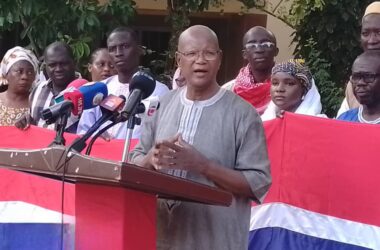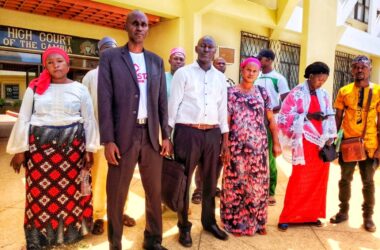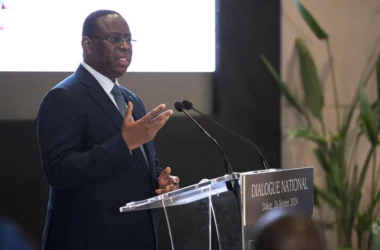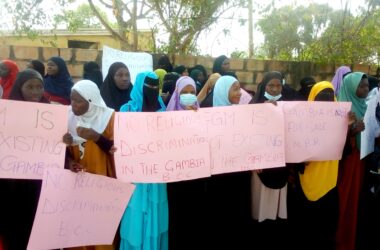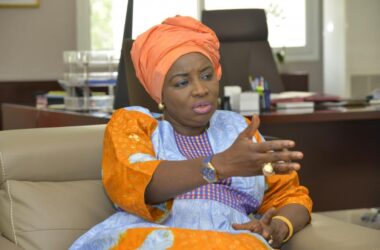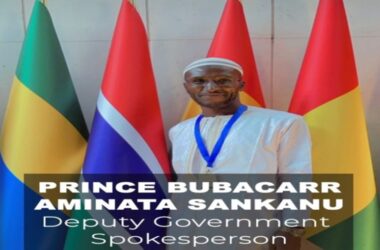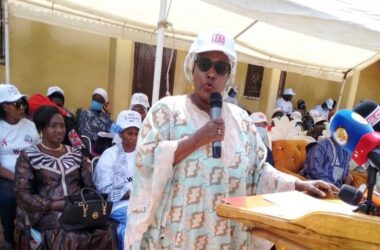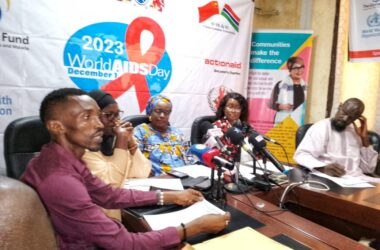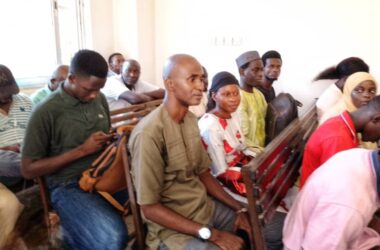GAMCOTRAP, in conjunction with its Spanish partner, YOLOCAMBA Solidaridad, recently hosted a regional meeting alternative ways of tackling the issue of FGM, and a number of distinguished personalities delivered papers, among was Cindy Gregg, Deputy Chief of Mission at the US embassy in Banjul. Below is a reproduction of the speech by the US diplomat.
The very idea of Female Genital Mutilation is not well understood by mainstream America. I will admit – Americans don’t understand if it is a cultural belief or a social tradition, such as getting married, is it religious-based or cultural based? — however it is regarded – it is deeply embedded into a society and cannot be changed overnight and cannot be changed by one or two people.
With the high rate of immigration to the United States, the practice of FGM appeared in the U.S. with the various cultures. In 1993, a U.S. Congresswoman, Patricia Schroeder, worked hard to bring the issue of FGM to the forefront of American minds and in 1996, the outlawing of FGM was part of an immigration bill passed under the Clinton administration. At that time, health professionals and legal scholars commented that if FGM was made a crime, the practice would ‘go underground’, victims of FGM would not seek healthcare and families would be torn apart if parents were jailed.
In retrospect, this has not happened. In November, 2007, in Atlanta Georgia, an Ethiopian immigrant was found guilty and sentenced to ten years in prison for performing FGM on his 2-year old daughter. This brought the issue of FGM in America to the forefront once again. With the exception of the recent Georgia case, no immigrants have been imprisoned. However, it is estimated that there are approximately 200,000 young women ‘at risk’ in the U.S. What do we mean by at risk? Young women who live in the cultural enclave where their parents and older generations have brought the practice with them.
But why does one generation continue to cling to this millennia-old tradition? Studies in the U.S. have found that once the older generations pass on, the newer generations of immigrants seem relieved that they are not allowed under law to perform the circumcisions.
As societies and cultures evolve – some more willingly than others and some faster than others due to their economic upswing – their traditions must evolve at the same time. Cultures are not static – and their traditions should not be static either. Traditions should complement a culture, help the people grow, educate the young and lead its young people forward. Traditions – and cultures – should not harm and prevent growth.
How do groups then, such as GAMCOTRAP and Yolocamba Solidaridad, begin to change a tradition? When working with such an issue as FGM, it is important to remember:
First –FGM is both a matter of women’s rights and of cultural self-determination.
Second – do not pass judgment on another’s cultural customs.
And third –combating the practice of FGM is a long-term process of persuasion that
must be conducted within communities, not by outsiders.
With these three important points always in mind, GAMCOTRAP and YOLOCAMBA Solidaridad set out to change the world, a little at a time. How can we – you — help them?
There are several ways:
Through formal education – issues that affect the rights, the future and the well-being of children as well as benefit the society as a whole should be incorporated into the formal school curriculum. This was best demonstrated with the Civil Rights Movement in the U.S. Following the passage of the Civil Rights Act in 1964, public schools in the U.S. were mandated to incorporate a broader history of the Blacks in America and the positive impact that they had on American growth and civilization.
Through informal education – or what we call – grassroots education, meeting with mothers, fathers, and young women, village leaders, religious and community leaders. It is necessary to make people understand that their silence is consent. Not speaking up, not doing anything, not changing harmful practices is just as wrong as doing the actual circumcision itself. People need to be empowered not to remain silent, but rather stand up for the rights of women, themselves, and their children.
Through non-governmental organizations and funding opportunities – Again, I would like to thank the Region of Madrid for taking such an important step in funding this project to sensitize Gambian men and women about the harmful effects of FGM. The U.S. Embassy very much admires and congratulates Dr. Isatou Touray and the work that she has accomplished in The Gambia. And we are proud of all the Gambians throughout the country who have ‘thrown down the knife.’ They have realized that for their cultures to thrive and for their children to thrive, their traditions must change to protect the young, ensure their health and well-being, and guard their rights.
Sources: The Female Genital Cutting Education and Networking Project; February 11, 2007
Warning: Trying to access array offset on null in /srv/users/jollofnews/apps/jollofnews/public/wp-content/themes/wpzoom-prime-news/functions/widgets/carousel.php on line 39


